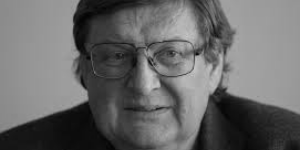
Svyatoslav Medvedev is a full member of the Russian Academy of Sciences (RAS), and is currently appointed to the Institute for Biomedical Problems. From 1990 to 2017 he served as Director of the Institute of Human Brain. His main areas of research include human neurophysiology; investigating the neurophysiological correlates and basic organizational and functional mechanisms of maintaining mental activity in the cerebral system; neuronal activity of the human brain; depth evoked potentials related to visual perception; PET and fMRI studies of higher nervous system activity especially systems maintaining high mental activity and different kinds of pathologies; as well as brain maintenance of attention, thinking, creativity, speech, emotions; neurooncology, trauma, neurodegenerative disorders, and ischemic stroke. He has published more than 200 articles and 6 books.
Education
Dr. Sci., Physiology
PhD, Theoretical Physics, Lenigrad State University
Links
- Institute for Biomedical Problems of the Russian Academy of Sciences (IBMP RAS)
- Traditional Buddhist meditations reduce mismatch negativity in experienced monk- practitioners
- Characteristics of the Involvement of Hidden Nodes in the Activity of Human Brain Systems Revealed on fMRI Data
- Neurophysiologic correlates of the altered state of consciousness during hypnosis [in Russian
- Neurophysiological correlates of verbal activity in patients with speech disorders of traumatic etiology
- Visual properties of neurons in the thalamus and striopallidar complex of the human brain
- Possible role of an error detection mechanism in brain processing of deception: PET-fMRI study
Related Studies
The Field Study of Long-term Meditation Practitioners and the Tukdam Post-death Meditative State
A global community of field researchers are collaborating on a study of an ancient monastic post-mortem meditative state known as tukdam, practiced by present-day expert Tibetan Buddhists and how such a practice might offer insight into mental, spiritual, and physical well-being during the death process, both for the dying and for their support community.


